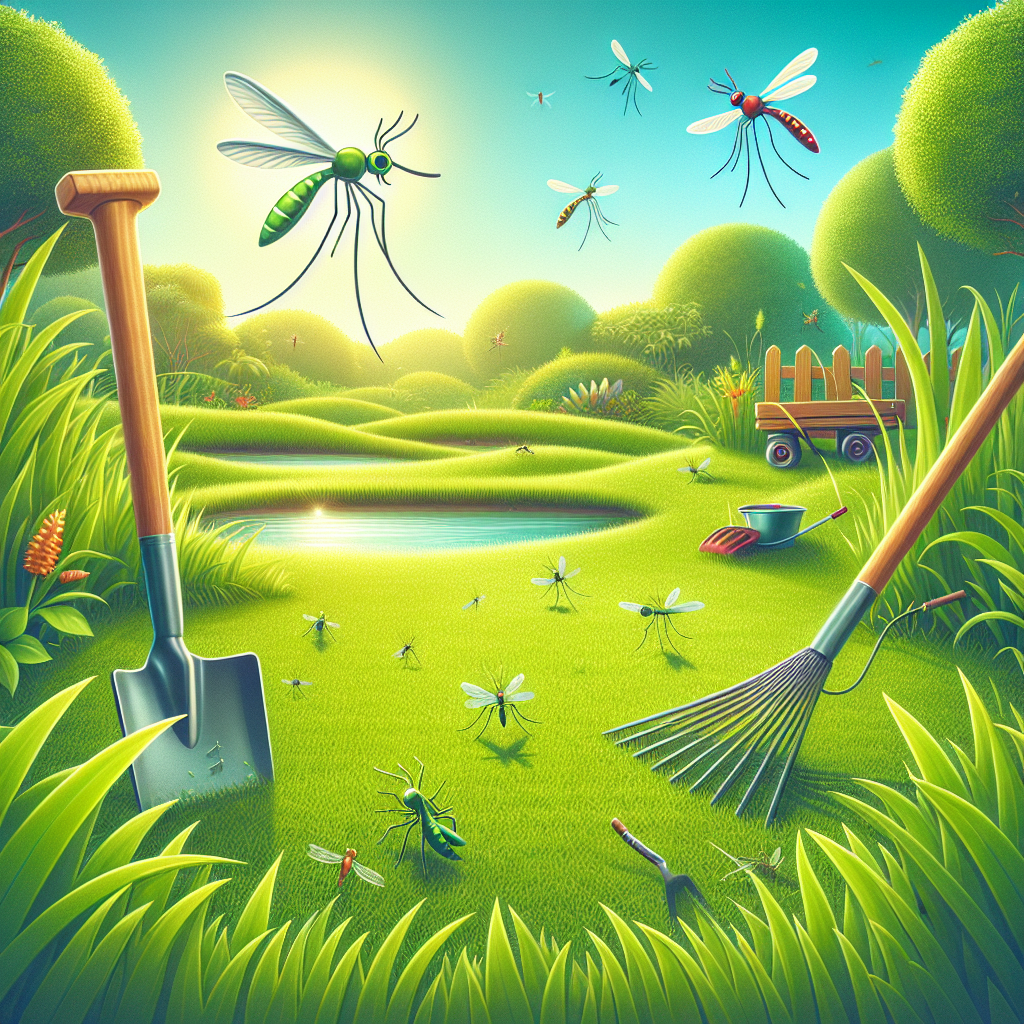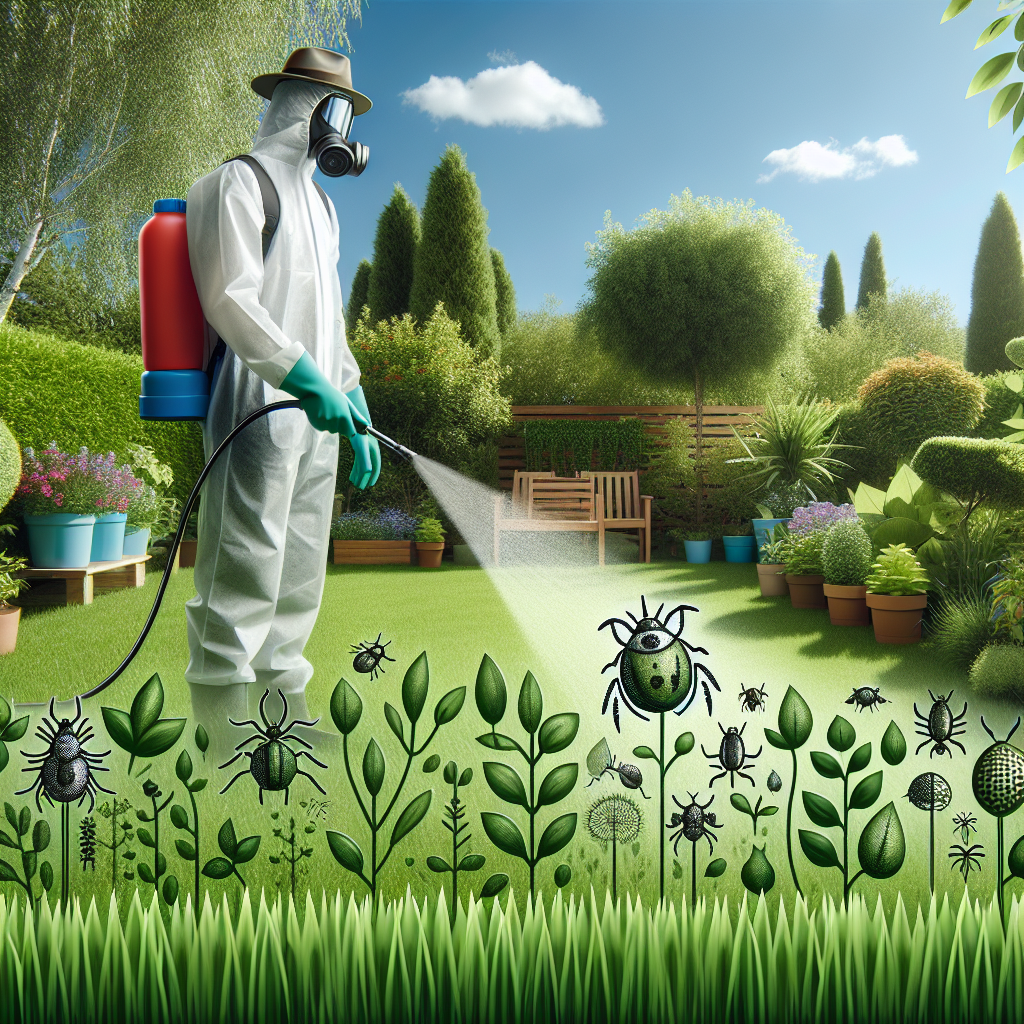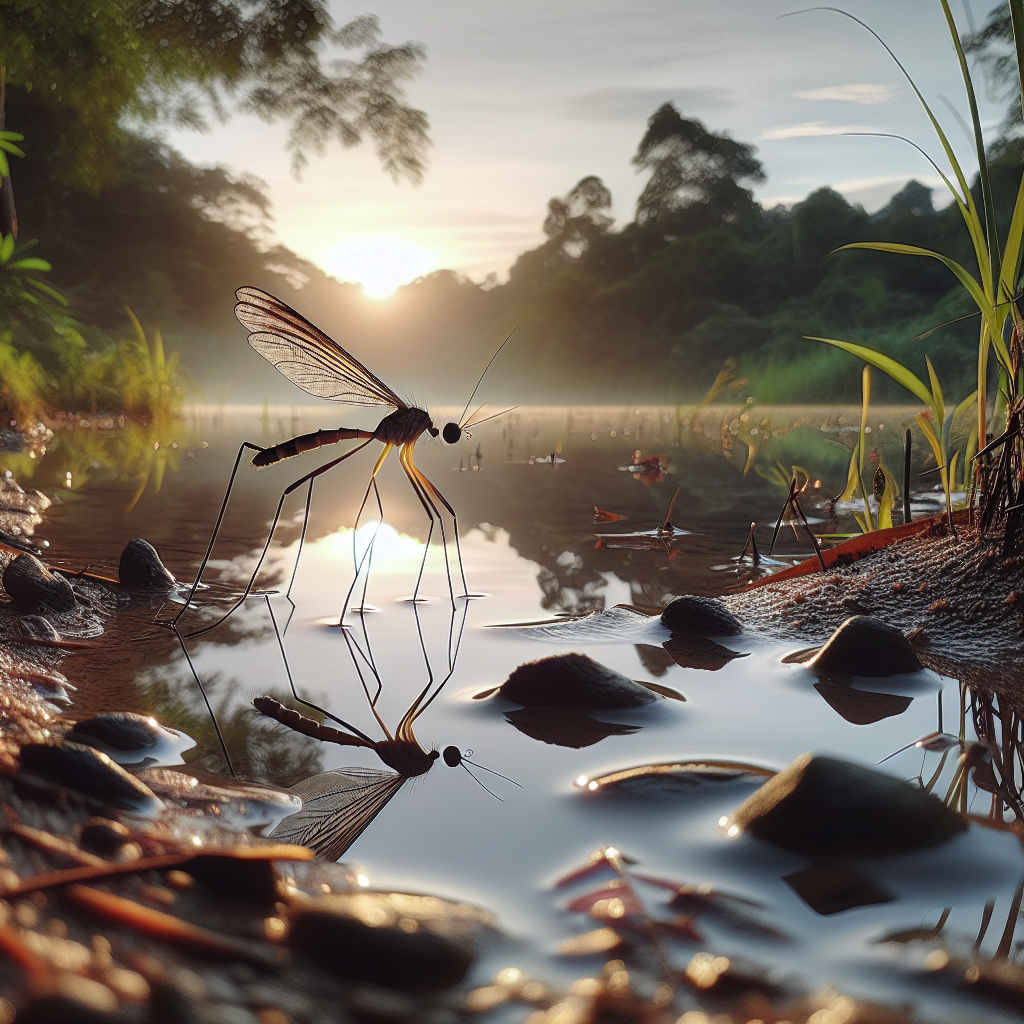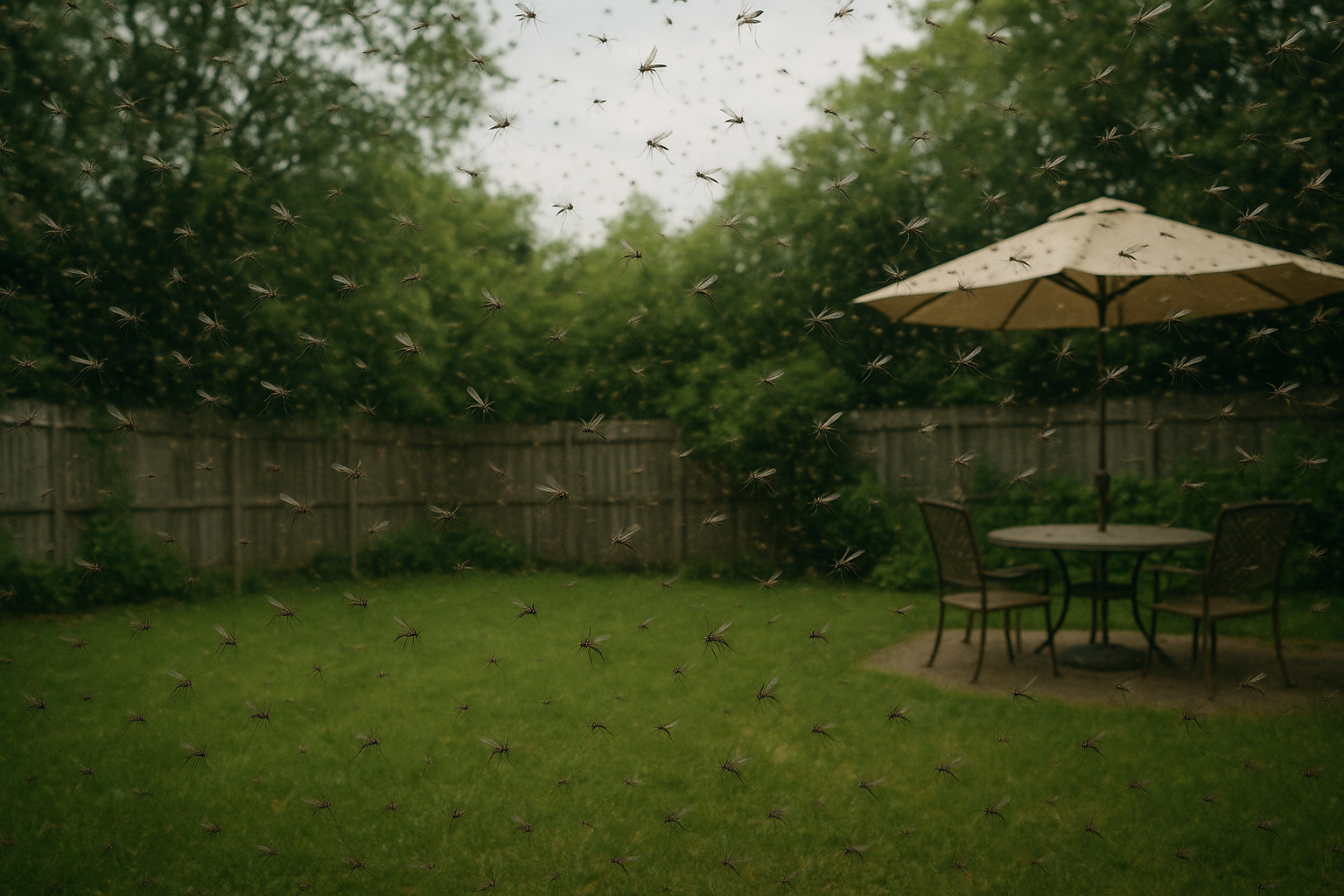Getting Rid of Mosquitoes in Your Backyard Permanently
Understanding the Mosquito Problem
Mosquitoes are more than just a nuisance; they can turn your peaceful backyard into an unbearable space. These tiny pests are not only annoying but also pose significant health risks. Understanding why mosquitoes are attracted to your yard and the dangers they bring is the first step toward reclaiming your outdoor space.
The Science Behind Mosquito Attraction
Mosquitoes are drawn to your backyard for several reasons, many of which are tied to their survival and reproduction. Standing water, for instance, is a breeding ground for mosquito larvae. Even small amounts of stagnant water in flowerpots, birdbaths, or clogged gutters can attract them. Vegetation, such as overgrown bushes and tall grass, provides shade and shelter for adult mosquitoes during the day. Additionally, mosquitoes are highly sensitive to body heat, carbon dioxide, and sweat, which makes humans and pets prime targets. Understanding these factors can help you identify and eliminate the conditions that make your yard a mosquito haven.
Health Risks Associated with Mosquitoes
Mosquitoes are not just irritating; they are also carriers of dangerous diseases. In the United States, mosquitoes can transmit illnesses like West Nile virus, dengue fever, and, in rare cases, malaria. Globally, they are responsible for spreading Zika virus and yellow fever. These diseases can lead to severe health complications, including fever, joint pain, and even neurological issues. Preventing mosquito infestations is not just about comfort—it's about protecting your health and the well-being of your family.
Identifying Mosquito Breeding Grounds
To effectively combat mosquitoes, you need to locate and eliminate their breeding sites. Mosquitoes lay their eggs in stagnant water, so identifying these areas in your backyard is crucial.
Common Breeding Areas to Check
Mosquitoes are opportunistic breeders, and even the smallest amount of standing water can serve as a nursery for their larvae. Here are some common areas to inspect:
- Flowerpots and saucers : Water can collect in the base of potted plants.
- Birdbaths : While they attract birds, they can also attract mosquitoes if not cleaned regularly.
- Clogged gutters : Leaves and debris can trap water, creating a perfect breeding ground.
- Puddles and low-lying areas : Poor drainage can lead to water pooling after rain.
- Unused tires or containers : These often-forgotten items can hold water for weeks.
How to Inspect Your Yard Effectively
Conducting a thorough inspection of your yard is essential. Start by walking around your property after a rainstorm to identify areas where water collects. Check hidden spots like under decks, behind sheds, and in dense vegetation. Use a flashlight to inspect dark or shaded areas where mosquitoes might rest during the day. Regular inspections will help you stay ahead of potential infestations.
Natural Methods to Repel Mosquitoes
If you prefer eco-friendly solutions, there are several natural methods to keep mosquitoes at bay. These options are safe for your family, pets, and the environment.
Plant-Based Solutions
Certain plants are known for their mosquito-repelling properties. Adding these to your garden can help deter mosquitoes naturally:
- Citronella : This fragrant grass is a popular ingredient in mosquito repellents.
- Lavender : Its soothing scent is pleasant to humans but repels mosquitoes.
- Marigolds : These bright flowers contain pyrethrum, a natural insecticide.
- Basil : Not only does it repel mosquitoes, but it’s also a great addition to your kitchen.
- Lemongrass : Similar to citronella, it emits a strong citrus scent that mosquitoes dislike.
DIY Mosquito Repellents
Homemade mosquito repellents are an affordable and chemical-free alternative. Here’s a simple recipe:
- Mix 10 drops of essential oil (like citronella, eucalyptus, or tea tree) with 2 tablespoons of witch hazel.
- Add 2 tablespoons of water and pour the mixture into a spray bottle.
- Shake well and apply to exposed skin before heading outdoors.
These natural solutions are effective for short-term relief and can complement other mosquito control methods.
Long-Term Strategies for Mosquito Control
For permanent mosquito control, you’ll need to implement sustainable strategies that address the root causes of infestations.
Landscaping Tips to Reduce Mosquito Habitats
Proper landscaping can make your yard less appealing to mosquitoes. Here are some tips:
- Trim bushes and hedges : Overgrown vegetation provides shade and shelter for mosquitoes.
- Improve drainage : Fill in low-lying areas and ensure proper water flow to prevent puddles.
- Use mulch sparingly : Excessive mulch can retain moisture, attracting mosquitoes.
- Install gravel or pavers : These materials improve drainage and reduce standing water.
Installing Mosquito Control Systems
For long-term protection, consider investing in mosquito control systems. Options include:
- Mosquito traps : These devices attract and capture mosquitoes using light or carbon dioxide.
- Zappers : Electric zappers kill mosquitoes on contact.
- Misting systems : These automated systems release a fine mist of insecticide to target mosquitoes.
Call 704-327-6235 today for a free quote or to schedule a service.
Chemical Solutions for Mosquito Elimination
When natural methods aren’t enough, chemical treatments can provide effective mosquito control. However, they should be used responsibly.
Choosing the Right Pesticides
Look for EPA-approved mosquito control products that are safe for residential use. Options include:
- Larvicides : These target mosquito larvae in standing water.
- Adulticides : These kill adult mosquitoes and are often used in foggers or sprays.
Always follow the manufacturer’s instructions and avoid overapplication to protect beneficial insects like bees.
Professional Mosquito Control Services
For severe infestations, hiring a professional pest control service is often the best solution. Experts can assess your property, apply targeted treatments, and provide ongoing maintenance. Professional services ensure thorough and effective mosquito elimination, giving you peace of mind.
Preventative Measures to Keep Mosquitoes Away
Prevention is key to maintaining a mosquito-free backyard. By adopting proactive habits, you can stop mosquitoes from returning.
Regular Maintenance Practices
Routine yard maintenance is essential. Here’s what you should do:
- Clean gutters : Remove leaves and debris to prevent water buildup.
- Refresh water sources : Change the water in birdbaths and pet bowls every few days.
- Mow the lawn : Keep grass short to eliminate mosquito hiding spots.
- Dispose of trash : Remove old tires, cans, and other items that can collect water.
Seasonal Mosquito Prevention Tips
Mosquito activity varies by season, so adjust your prevention efforts accordingly:
- Spring : Inspect your yard for standing water after snowmelt.
- Summer : Use fans and repellents during peak mosquito season.
- Fall : Clear leaves and debris to prevent water accumulation.
- Winter : Winterize your yard by draining water features and storing outdoor furniture.
Enhancing Your Outdoor Experience
A mosquito-free backyard allows you to fully enjoy your outdoor space. Here’s how to create an environment that’s both functional and relaxing.
Mosquito-Proof Outdoor Living Spaces
Consider these upgrades to keep mosquitoes out:
- Screened patios : Enclose your outdoor seating area with fine mesh screens.
- Mosquito nets : Use nets over hammocks or outdoor beds.
- Outdoor fans : Mosquitoes are weak fliers, so fans can help keep them away.
Hosting Mosquito-Free Gatherings
Planning an outdoor event? Use these strategies to keep mosquitoes at bay:
- Citronella candles : Place them around the seating area for added protection.
- Portable repellents : Provide guests with wearable repellents or sprays.
- Food covers : Use mesh covers to protect food from mosquitoes.
Call 704-327-6235 today for a free quote or to schedule a service.
Mosquito Authority of Charlotte NC delivers expert mosquito control services, mosquito and tick control, and pest control services. No contracts. Guaranteed results. Call 704-327-6235 today or visit our website.










